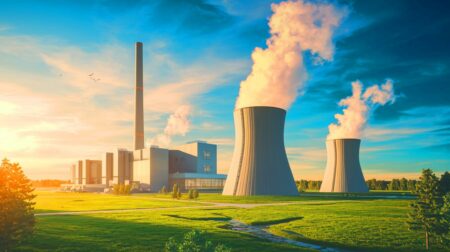The catastrophic Russia-Ukraine conflict has led to sweeping economic sanctions from Europe and the United States, but now that placing pressure on Moscow involves a ban on Russian fossil fuels, it’s also sparked a renewed sense of urgency among Europeans seeking to transition away from oil and natural gas dependency.
The United States on Tuesday announced a total ban on energy imports from Russia, with President Joe Biden sending a dual message. On the one hand, Biden said the U.S. is aware that European nations, such as Germany, are more limited in the immediate scope of their response because of their existing dependency on Russian imports.
He said the U.S. is working with EU and NATO partners to develop “a long-term strategy” to reduce Europe’s reliance on Russian energy.
“This crisis is a stark reminder: To protect our economy over the long term, we need to become energy independent,” said Biden. “I’ve had numerous conversations over the last three months with our European friends of how they have to wean themselves off of Russia — Russian oil. It’s just not — it’s just not tenable.”
Biden added that Europe’s crisis makes clear the need to accelerate the transition to clean energy.
“This is a perspective, as I said, that our European allies share and the — a future where together we can achieve greater independence,” the U.S. president said. At the same time, though, he appeared to encourage greater U.S. fossil fuel production in order to achieve that independence in the short-term.
Russian oil accounts for a third of Europe’s oil imports, while it’s less than 10% in the U.S., the White House said. As of last year, at 4.5 million barrels per day, Europe imports more than six times more oil from Russia than the U.S., while the U.S. is producing enough oil domestically to be a net exporter of oil and gas energy.
“We’re moving forward on this ban, understanding that many of our European Allies and partners may not be in a position to join us,” the White House said. The U.S. economic sanctions against Russia have been discussed with Germany, France, the United Kingdom and other partners.
Meanwhile, the European Union Commission on Tuesday focused on ways to dramatically and rapidly end the dependence of its member nations on Russian energy. The commission released a plan to make Europe independent of Russian oil well before 2030, with measures the EU said could cut its demand for Russian oil by two-thirds before the end of this year.
Accelerating the transition to renewables and addressing energy costs, among other things, will make true independence from Russian oil imports a reality sooner, said Ursula von der Leyen, the EU Commission president.
“We must become independent from Russian oil, coal and gas. We simply cannot rely on a supplier who explicitly threatens us,” said von der Leyen, who plans to discuss this issue with other European leaders at Versailles later this week. She appeared with Italian Prime Minister Mario Draghi, above, ahead of that meeting.
“We need to act now to mitigate the impact of rising energy prices, diversify our gas supply for next winter and accelerate the clean energy transition,” said von der Leyen. “The quicker we switch to renewables and hydrogen, combined with more energy efficiency, the quicker we will be truly independent and master our energy system.”
Did you like it? 4.5/5 (27)








